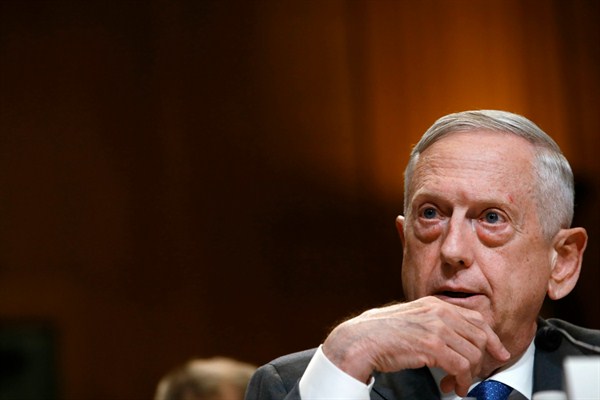The United States obsesses about its global strategy more than any nation on earth. This fixation is reflected in the fact that Congress requires the executive branch to produce regular reports on its security strategy. A year ago, the Trump administration published its inaugural National Security Strategy. A few months later, the Pentagon released its National Defense Strategy to explain how U.S. military power would be used to implement the National Security Strategy. As it has in the past, Congress then created a bipartisan National Defense Strategy Commission to assess the Pentagon’s strategy. This included an august team of top policy experts and former officials from the Pentagon, the uniformed military, Congress, the intelligence community and the diplomatic corps.
A few weeks ago, this commission released its latest report. Unsurprisingly, and despite the appearance of constant and vigorous policy debate in Washington, the report didn’t offer any alternatives to the strategy that the United States has pursued for the past few decades, instead recommending an even more vigorous pursuit of global primacy and military dominance. It looked like the mainstream position on American strategy on steroids.
America’s fixation with primacy and military dominance, while now the orthodoxy, is a relatively recent thing. It was initially intended as a temporary expedient to help stave off the Soviet Union as Europe and other regions rebuilt after World War II and dozens of new nations emerged out of the former European colonial empires. But during the course of the Cold War, the United States somehow became addicted to primacy, no longer seeing it as a temporary expedient but as the new normal.

